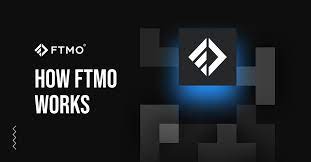What Is the FTMO Challenge?
The FTMO Challenge is essentially a high-stakes evaluation process designed to test traders’ skills and potentially provide them with access to funding for trading with larger sums of capital. In essence, it’s like stepping into a trading arena where success means gaining financial backing and failure results in disqualification and disappointment.

The process involves traders registering for the challenge and selecting their preferred account size. They are then provided with a set of guidelines and risk parameters to follow while trading on FTMO’s platform. The goal is to meet specific profit targets while adhering to the rules and risk management guidelines set by FTMO.
Successful completion of the challenge entails meeting the profit targets within the specified time frame and adhering to the risk management guidelines. Traders who pass the challenge are eligible to receive funding from FTMO to trade with larger sums, providing them with opportunities for growth and expansion in their trading activities.
How Does It Work?
Pros
Cons
Conclusion
In conclusion, while the FTMO Challenge offers potential benefits such as access to funding and opportunities for growth, it also comes with inherent risks and drawbacks. The high-pressure environment, profit-sharing arrangements, risk of failure, and limited control over capital are significant factors that traders must consider before undertaking the challenge.
The pressure to meet profit targets within a specified time frame can lead to emotional trading decisions and increased stress levels. Traders may find themselves grappling with fear of failure and the desire to succeed, which can cloud their judgment and impact their performance negatively.
Furthermore, profit-sharing arrangements mean that traders may receive a lower portion of their earnings compared to trading independently with their own capital. This can diminish traders’ incentives to maximize profitability during the challenge and may lead to feelings of dissatisfaction and frustration.
Additionally, the risk of failure and disqualification from the FTMO Challenge can result in loss of time invested and feelings of disappointment and self-doubt. Traders who fail to pass the evaluation may question their abilities and may be reluctant to pursue further challenges or trading opportunities.
Moreover, the limited control over capital and dependency on FTMO’s rules and regulations may restrict traders’ autonomy and creativity in the trading process. Traders may feel constrained by external guidelines and may find it challenging to implement their preferred trading strategies effectively.
Overall, while the FTMO Challenge may offer potential benefits for traders looking to prove their skills and access funding for trading, it is essential to weigh the risks and drawbacks carefully. Traders should assess their readiness for the high-pressure environment, consider alternative funding options, and evaluate whether the benefits outweigh the potential drawbacks before undertaking the challenge.

